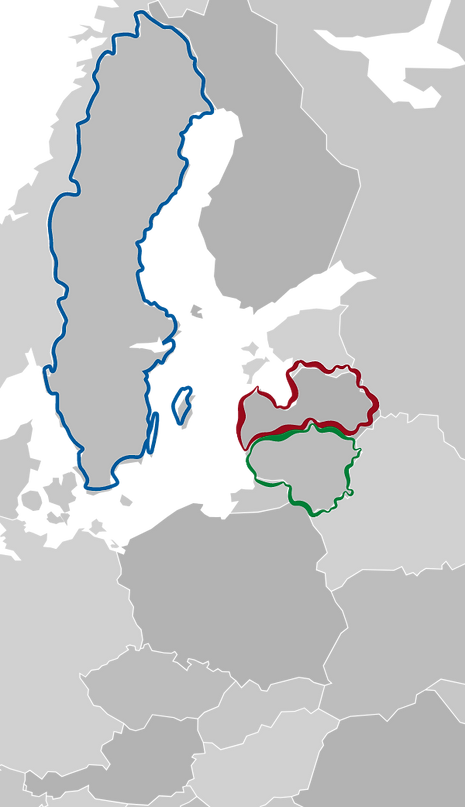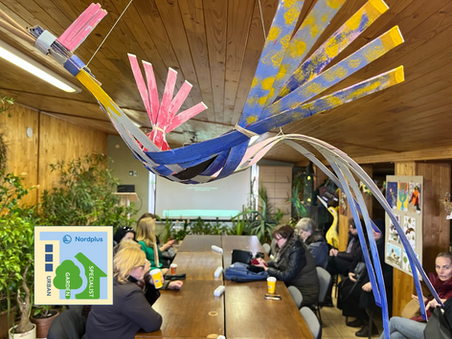

General information

Within the Nordplus Adult 2021 project “Urban Garden Specialist” partners aim to develop an 80-hour lifelong education programme "Urban Gardening" for adults in 4 languages. The content will comprise of the modules on landscape planning and design, plant compatibility, sustainable use of land and urban green spaces, the history of the "parklet" concept and necessities for their construction. The programme will be designed for implementation as an on-site, online or a hybrid (partially on-site, partially online programme). The programme will be designed in English, Latvian, Lithuanian, and Swedish.
The audience of the programme are adults with or without prior knowledge in the field. These can be young people or seniors who are eager to make their cities greener. The programme may also be interesting for people with disabilities. The programme will consist of two parts, which will allow people to decide whether to acquire the basics or gain a higher level of proficiency in horticulture and design. All partners have experience in adult lifelong training programme design; each partner specialises in a certain field – horticulture, technical regulations, design, translation services, and work with adult trainees/immigrants, who will be the audience of the course.
Project period 07/2021 - 06/2023
Project number NPAD-2021/10161
Grant proposed 43910 EUR
3 countries
Green growth
Climate change
Sustainable development
Project aim
The partners want to create a new programme that will foster the concept of green cities. The programme will be designed to be launched both in the classroom or as a distance learning programme. It will assist adults in learning new skills that will help them to improve their living environments. The programme will target its enrolment at young people, adults, or seniors, and will foster the quality of these people’s lives. The programme will also be valuable for people from the unprivileged social backgrounds or disabled people, as it will allow them to gain basic skills to find a job as well as cope with social and psychological barriers.


There is a lack of green spaces in modern cities, and there is strong interest in making households greener and more sustainable among their inhabitants.

There is a lack of adult professional development programmes that would allow them to learn about the instalment of urban gardens.

The partners work with the audiences of people who would benefit from acquiring the skills on urban garden design, implementation and maintenance.

"Urban Garden Specialist" programme modules
Module 1 “The Urban Garden Concepts”
Contents: Eco-friendly approaches. Safety. Sustainability.
Module 2 “Types and Functions of Gardens”
Contents: history of gardens, types, and functions of gardens.
Module 3 “Landscape Factors”
Contents: Garden as a part of the landscape. Analytical plan of the land plot territory - the rational use of garden space. Landscaping. Working methods with simple tools and machines that do not require special licences, learning about paving materials, materials for basements, walls, and buildings.
Module 4 “Garden Planning and Ergonomics”
Contents: Spatial planning of functional garden areas. Analysis of directions of movement. Ergonomics, the main principles of composition.
Module 5 “Garden Functional Components”
Contents: Foundations of green areas. Lawn, its types, installation, and care. Basic knowledge of soil education, distinguishing between natural and cultivated plants commonly used in landscape construction, vertical planning and ground preparation. Types of road surfaces, their construction and installation. Establishment of the garden water bodies. Local drainage and irrigation systems. Light in the garden.
Module 6 “Plant Compatibility and Composition”
Contents: The basics of the working on planting areas. Selection of plants for garden composition. Perennials, annual and biennial flowers in the garden, planting, care, propagation. The most valuable trees in the landscape garden, their planting and care.
Module 7 “Urban Garden Plan”
Contents: Garden plan and presentation. Flower bed layout. Garden installation procedure. Dendrological plan. Founding and maintaining of planting areas. Planning, drawing and designing a garden or part of a garden using various ICT tools; preparing an estimate for ordering materials, storing materials; assessing the site in the wild, marking the planting area and preparing the soil; drawing up a maintenance plan.
Module 8 “The Basics of Art and Design”
Contents: Floristics. The artistic value of composition. Colour combinations. Plant decorations.
Module 9 “The Parklet and Community Garden Concept”
Contents: the history of these two concepts, cooperation with specialists in construction to plan and install a parklet or to arrange a community garden, documents necessary for coordination of the construction plan.
Module 10 “Urban Garden on the Windowsill”
In this short module you will develop understanding about creating a garden on a windowsill or balcony. You will get an insight into sowing and care for herbs, plants, and flowers. You will be informed about the germination process.
Progress of the project
Project calendar
2023
June 2023
End of the project. Dessimination meeting at Bulduri.
May 2023
Final preparations of the programme, proofreading, Moodle.
13-17 March 2021
Within the Nordplus Adult project “Urban Garden Specialist” the partners have been working for almost two years developing nine modules of the programme..
2022
10 June 2022
All partners submit to the coordinator their institution’s interim reports.
2 June 2022
Review of the project progress. Plan for June - September. Preparing interim report. Reflecting on the progress of the project. Discussing different collaboration opportunities and publicising the materials.
22 March 2022
Presentation of the project at the annual conference “Kas notiek Bulduros”. The record of the presentation: https://drive.google.com/file/d/1SfxVTx3ToBC1DWcIGxZWt5SHNx8bjlxr/view?usp=sharing (in Latvian)
10 March 2022
Presentation of the project content at the discussion/ conference with industry companies on work-based learning (for the qualification of carpenter - arborist and landscape construction technician). Project presentation, sharing information about the content of the course “Urban Gardening” designed within the project. Venue: Bulduri Horticultural School.
9 March 2022
Improving materials. Adding teacher material packages and video lectures. Review of the designed materials. Editing and translation. Dissemination of resources. Facebook posts, other channels for dissemination of information.
2021
June – August 2021
Collaboration with partners through email, phone, and Zoom conversations in small groups. Building the teams to start the course material design. Designing the project website.
7 October 2021
All partner meeting. Course material structure. Duties and responsibilities. Collaboration model. Agreements between partners and coordinator. Creating the Moodle space for the project. Access to Moodle. Essential training about Moodle.
5 November 2021
All partner meeting. Progress of the course material design. Tasks and deadlines. Sharing materials, agreeing on the structure of materials. Quality assurance approach.
20 December 2021
All partner meeting. The plan for January – June. Review of the designed modules. Editing and translating materials. Agreeing on the elements of video lectures or teacher information packages. Dissemination of information about the project.
Partner institutions
Coordinating institution:
Bulduri Horticultural School (LV-BDV), Latvia
web: https://bulduri.lv/
Contact person: Kristine Bulkovska
E-mail: kristine.bulkovska@bulduri.lv
Partner institutions:
CLIL Education Centre, Latvia
web: www.clilmc.com
Contact person: Veronika Skripačova
E-mail: v.skripacova@gmail.com
Riga Technical University, Latvia
web: https://www.rtu.lv/
Contact person: Sandra Treija
E-mail: Sandra.Treija@rtu.lv
SE-B-Creative Association (SE-BC), Sweden
Contact person: Ingmarie Rohdin
E-mail: ingmarierohdin@b-creative.link
LT-VsI Center for Social Innovation, Lithuania
Contact person: Aurelija Jankiene
E-mail: a.jankiene@socin.lt


.png)














